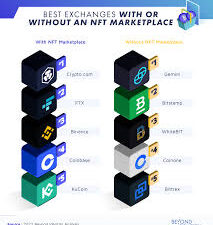Industry : The national automotive industry faces challenges in 2025. One of the challenges is when the government implements additional regional taxes or levies on motorized vehicles starting January 5 2025.
This tax opportunity policy is part of fiscal reform in the form of Law no. 1 of 2022 concerning Financial Relations between the Central Government and Regional Governments (HKPD Law). For motorized vehicles, the opsen policy targets motor vehicle tax (PKB) and motor vehicle title transfer fees (BBNKB).
Later, the PKB and BBNKB opsen will be collected by the district government (Pemkab)/city government (Pemkot) at a rate of 66 percent of the PKB and BBNKB received by the provincial government (Pemprov). Several provinces have prepared gubernatorial regulations (Pergub) regarding synergy between provinces and districts/cities relating to tax opportunity policies. Among them, South Sumatra, Central Java, West Nusa Tenggara and South Sulawesi.
This tax opportunity policy does not apply in Jakarta and East Java.
General Secretary of the Association of Indonesian Automotive Industries (solidconcrete) Kukuh Kumara said that the implementation of the tax option would pose many obstacles to the sale of new cars next year. “This policy must be addressed wisely by local governments, because they are the ones who understand better and have the data to implement tax opportunities,” he said, Sunday 29 December 2024.
The names of regions that implement tax opportunities are still confusing and uncertain. This makes GAIKINDO take a conservative view of the prospects for the national car industry in 2025. What is clear is that if there is an increase in taxes in the regions, Kukuh is worried that national car sales could fall close to the conditions during the Covid-19 pandemic.
The automotive conglomerate issuer, PT Astra International Tbk (ASII) will further review the impact of tax opportunities on its performance next year. ASII estimates that the four-wheeled vehicle market will decline in line with the increase in Value Added Tax (VAT) and tax opportunities. “Our target seems to be conservative,” said Tira Ardianti, Head of Corporate Investor Relations at ASII, Monday 30 December 2024.
Meanwhile, Chairman of the Commercial Sector of the Indonesian Motorcycle Industry Association (AISI) Sigit Kumala assessed that the implementation of the tax opportunity at the same time as the 12 percent VAT has the potential to erode national motorbike sales. Prior to these two tax policies, AISI projected national motorbike sales to be in the range of 6.4 million units to 6.7 million units in 2025. “However, with this calculation, we have to look again at what the impact will be,” he said.
Sigit also revealed that AISI received information regarding the discourse on providing incentives to anticipate the impact of tax opportunities in 2025. This association hopes that providing incentives can prevent the increase in tax opportunities from reaching four to seven percent.
Teuku Agha, 2W Sales & Marketing Department Head of PT Suzuki Indomobil Sales (SIS) said that the tax opportunity has the potential to make consumers postpone purchasing motorbikes next year. “Maybe consumers have the opportunity to shift by buying used motorbikes, because they are not subject to opsen,” he said.









